Is Healthy Eating Enough? 10 Weight Loss Tips for Older Adults
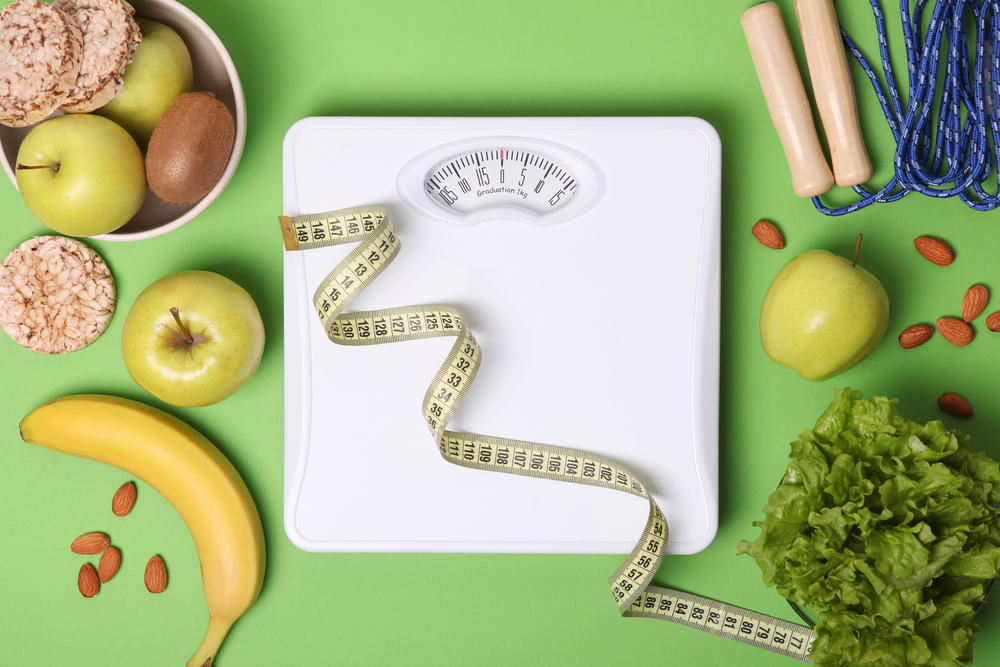
As we age, maintaining a healthy weight can become increasingly challenging, even if you’re sticking to a healthy diet. If you’re trying your best to eat right but not seeing the desired results on the scale, you’re not alone!
Although eliminating processed foods and feeding your body real nutrients is essential for weight loss and overall health, there are other essential factors to keep in mind.
So, if you’re eating healthy but not losing weight, here are 10 weight loss tips for older adults you may be overlooking.
1. Watch Your Calorie Intake
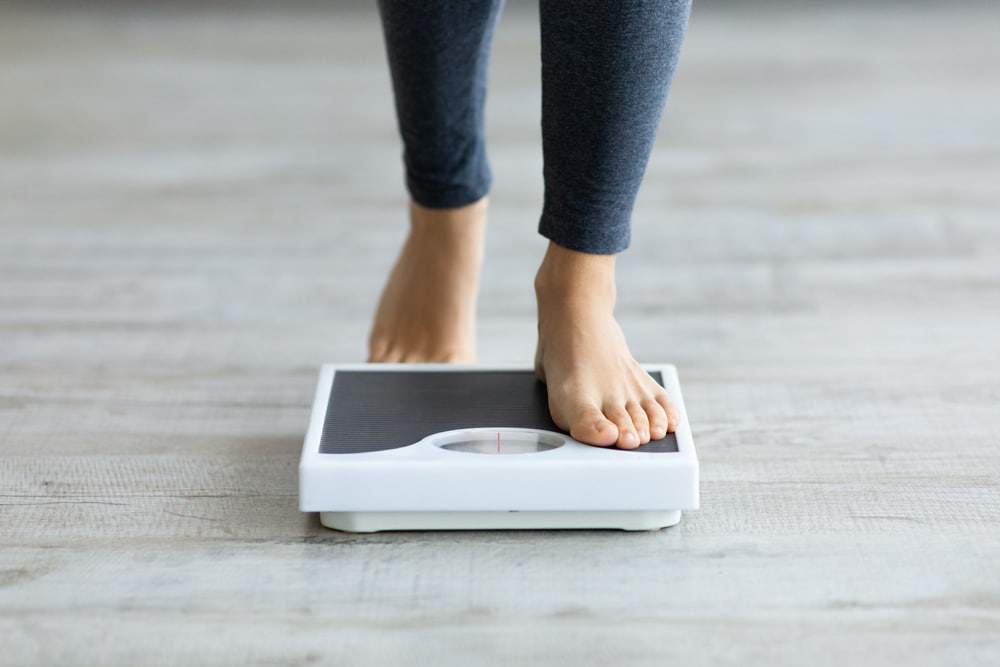
Photo Credit: Shutterstock
Even healthy foods have calories, and quantity does matter! You won’t lose weight if you consume more calories than your body needs.
Ultimately, the calories you eat will be stored in your body as fat unless you use them up. To avoid this, you can either incorporate more calorie-burning physical activity into your routine or cut back on the number of daily calories you consume. This ensures you’re in a calorie deficit — meaning you’re burning more calories than you’re consuming.
Consider a calorie-tracking app to help keep you accountable during the day. You may be underestimating just how many calories you’re actually taking in!
2. Reduce Portion Sizes

Photo Credit: Shutterstock
Even healthy foods can lead to weight gain if you’re eating large portions!
Use these guidelines to more accurately size up your portions:
- The size of your fist = A medium fruit, one cup of whole grains
- The size of your thumb = One ounce of cheese
- The tip of your thumb = One teaspoon of butter, oil, or nut butter
- A deck of cards = One serving of meat, poultry, or fish
- One cupped handful = One serving of cereal
- Two golf balls = one serving mashed potatoes or ice cream
Be mindful of portion sizes and try not to overeat, even if the food is healthy.
3. Look Out for Hidden Calories
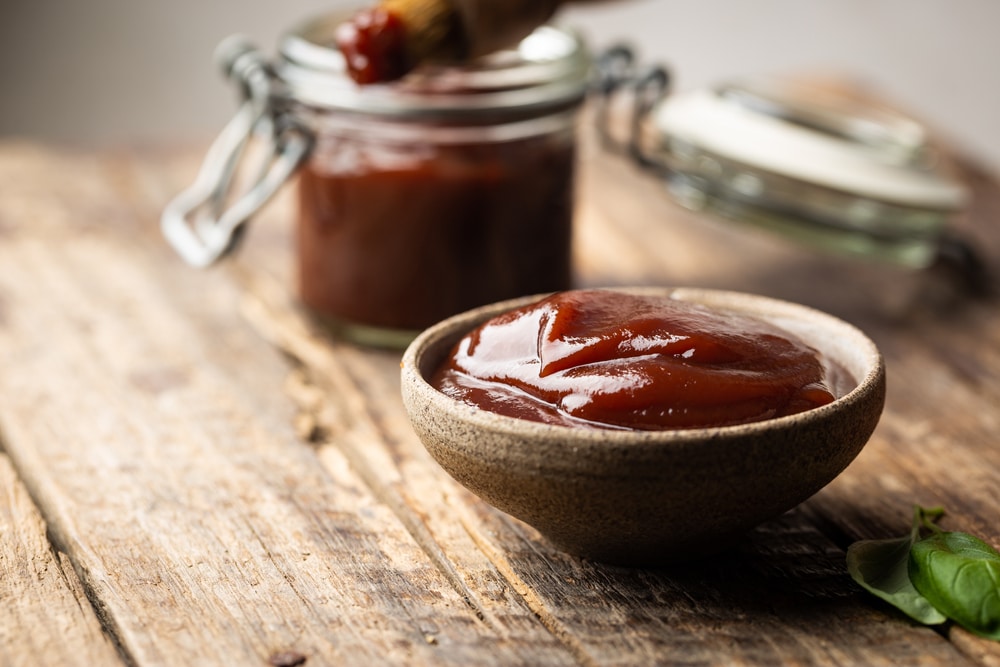
Photo Credit: Shutterstock
Be aware of hidden calories in sauces, dressings, and other foods. They can add up quickly and sabotage your weight loss efforts!
Hidden sugars are the biggest culprits. The top foods containing them include:
- Whole-grain cereals
- Granola bars
- Pasta sauce
- Low-fat salad dressings
- Store-bought smoothies
- Yogurt
- Salad dressings
- Milk alternatives such as almond milk and coconut milk
- Canned fruit
- Bottled tea
- Ketchup
- BBQ sauce
It’s helpful to make a habit of checking ingredient labels. Even so-called “healthy” items can be packed with things like added sugar, artificial sweeteners, and corn syrup!
4. Incorporate Exercise

Photo Credit: Shutterstock
While diet is crucial for weight loss, exercise also plays a huge role!
If you are not currently exercising, start small. Even a 10-minute workout can increase your heart rate and engage your muscles! Make sure you’re engaging in regular physical activity to burn extra calories, whether it’s morning yoga or a walk around the block.
Here are a few exercises developed specifically for older adults to help your weight loss efforts:
- 15 Best Mobility Exercises for Seniors to Stay Active
- Walking Workouts for Weight Loss
- Strength Training for Women Over 50: 11 Best Moves
- 10 Effective Seated Chair Exercises For Seniors
5. Assess Any Medical Conditions

Photo Credit: Shutterstock
Certain medical conditions, such as thyroid disorders or polycystic ovary syndrome (PCOS), can make it harder to lose weight.
If you suspect a medical condition might be hindering your progress, consult a healthcare professional.
6. Prioritize Sleep and Stress Management

Photo Credit: Shutterstock
Chronic stress and lack of sleep can interfere with your body’s ability to lose weight. Both can disrupt your hormones, making it harder to shed pounds.
Here are just a few of the amazing things getting enough sleep can do for your body:
- Hormone regulation. Sleep regulates hormones like leptin and ghrelin, which control hunger and fullness. Poor sleep can lead to increased ghrelin (appetite stimulant) and decreased leptin (appetite suppressant), promoting overeating.
- Supports metabolic function. Sleep supports optimal metabolic function, ensuring efficient energy utilization and preventing metabolic slowdown, which can occur with sleep deprivation.
- Improves energy levels. Sleep enhances energy levels and overall physical performance, encouraging regular exercise and adherence to a fitness routine.
- Reduces cravings. Sleep improves impulse control and reduces cravings for high-calorie, sugary carbohydrate foods, which are often sought out for quick energy boosts.
- Muscle recovery. Sleep supports muscle recovery and maintenance, which is crucial for an active lifestyle and effective weight loss through exercise.
7. Try Not to Focus Too Much on the Scale

Photo Credit: Shutterstock
Remember, your scale can’t differentiate between fat, muscle, bone, and water weight! It only shows the number of your total mass. If you’re losing fat but gaining muscle, you may actually be losing weight even if the scale says otherwise—so try not to get discouraged!
Instead, take progress photos, pay attention to how your clothes fit, your energy levels, and how you feel overall!
8. Be Aware of Water Retention

Photo Credit: Shutterstock
Sometimes, your body retains water, especially if you’ve recently changed your diet or exercise routine. This can mask weight loss on the scale. It’s essential to look at trends over time rather than focusing on daily fluctuations.
The best ways to help avoid water weight include:
- Exercising
- Staying hydrated (dehydration makes the body hold onto extra water!)
- Cutting back on sodium and carbs
9. Figure Out Your Metabolic Body Type
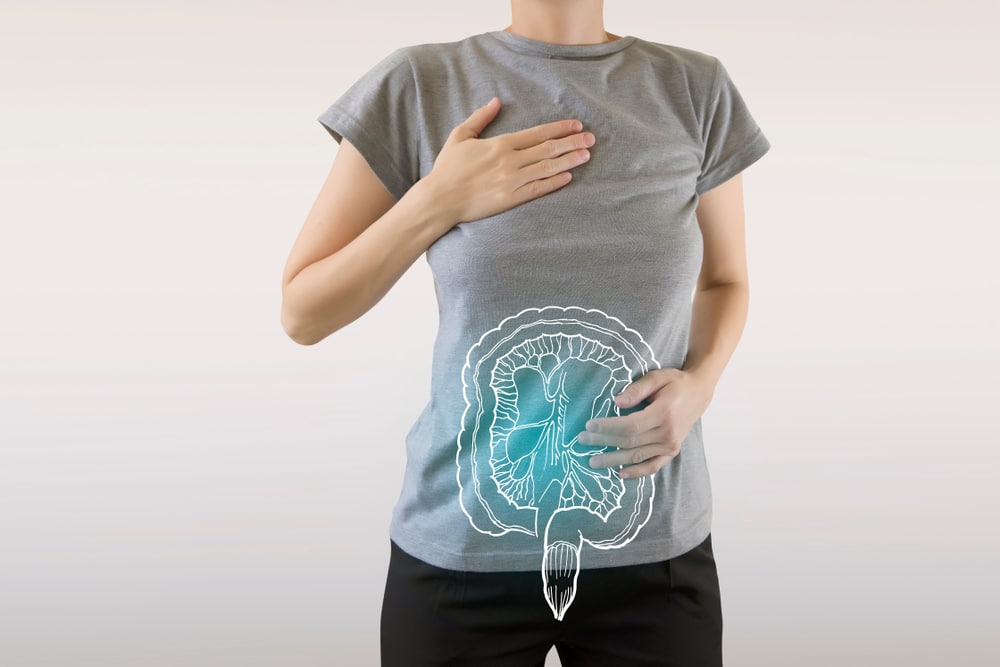
Photo Credit: Shutterstock
In short, metabolism is the process by which your body changes calories from food and drink into energy. Even at rest, your body needs energy for everything it does, including breathing, sending blood through the body, and maintaining hormone levels. The number of calories your body uses to do all of these things is known as basal metabolic rate.
Your basal metabolic rate is determined mainly by muscle mass but also depends on your body composition, sex, and age. Metabolism works at different intensities in different people (i.e., a “fast” or “slow” metabolism) and is mostly determined by your genes.
You can use this guide for the three different metabolic types to determine the best ways to lose weight based on your specific type.
10. Try to Practice Patience
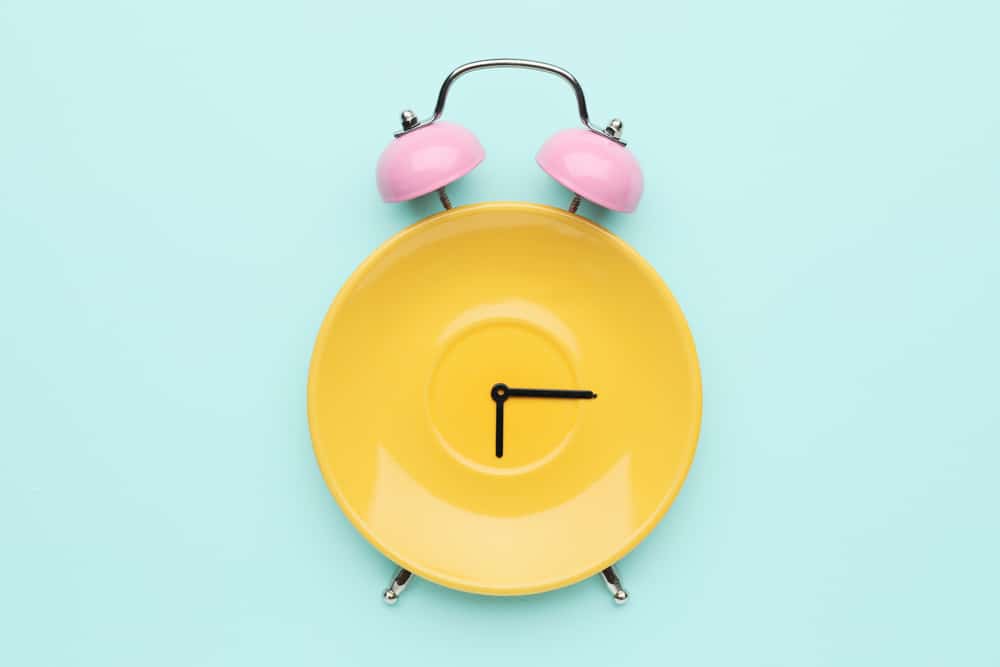
Photo Credit: Shutterstock
Weight loss takes time. It’s not always a linear process, and there will be periods where you might not see the scale move despite your efforts. Be patient and focus on overall health improvements.
Stay the course — you didn’t gain the weight overnight, and you can’t lose it overnight either! With persistence, patience, and hard work, you’ll reach your weight loss goals and enjoy the new, healthier you.
